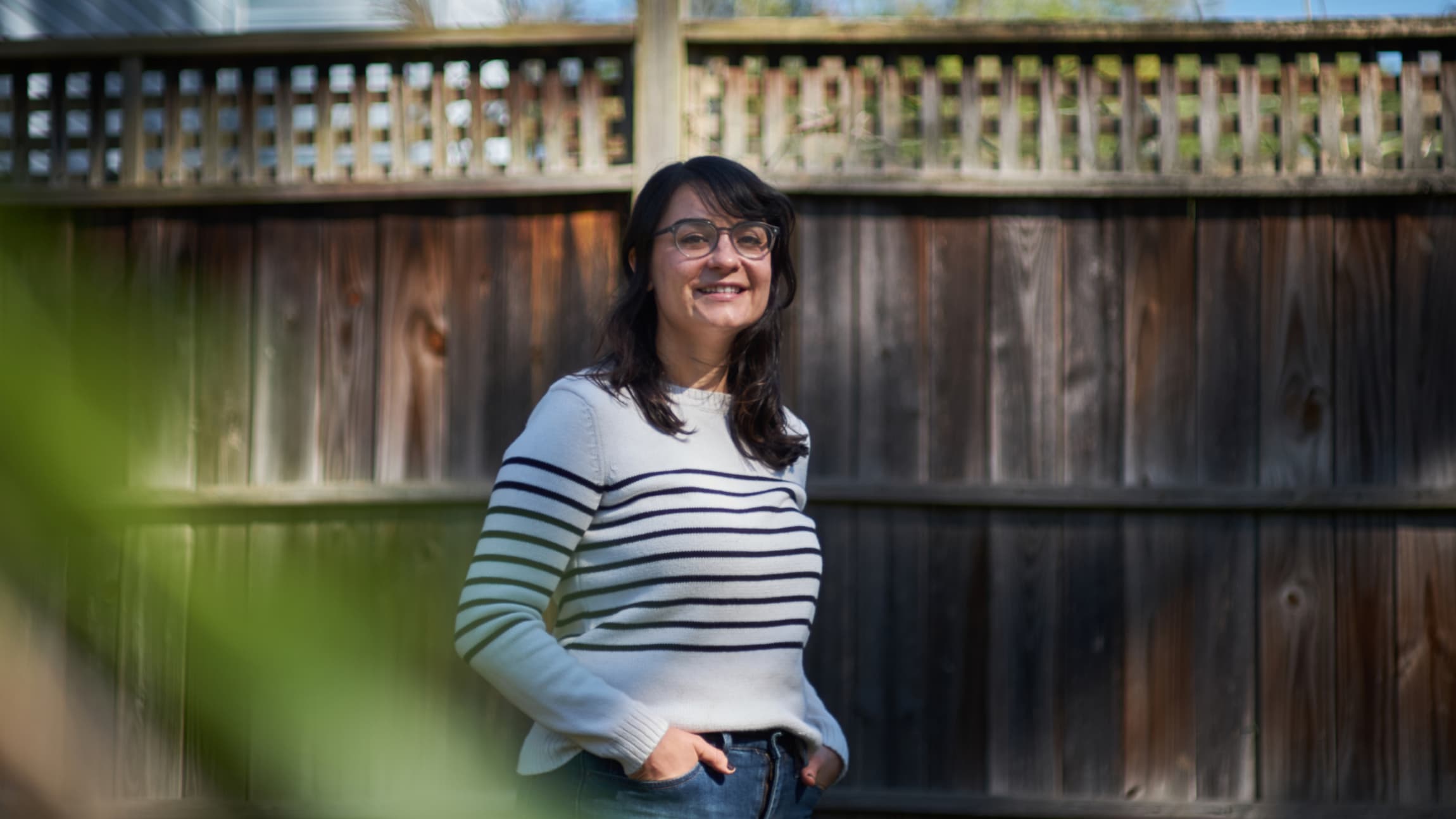I’m Elyse, pronounced like I have “a lease” on this building. It’s nice to meet you!
I’m a Chattanooga, Tennessee native (that’s southeast TN). I’m a huge book nerd and spent a lot of my childhood tucked away in my bedroom reading. I live with my husband, he’s a web developer/designer. We have an 11-year old mutt who is the best girl and a 13-year old cat, who is nothing but trouble. But I still love her.

My Qualifications
I graduated with a Doctorate of Occupational Therapy in early 2017 from the University of TN at Chattanooga.
My husband and I sold our home in downtown Chattanooga later that year. We decided instead to buy a 60 square foot travel trailer (a Casita if you’re curious) so that I could work as a travel occupational therapist (OT).
I worked as a travel OT in different skilled nursing rehab units in South Carolina and Oregon from 2017–2019. Due to some personal/family reasons, my husband and I decided to move back home in the summer of 2019. I began working in home health care for a local company.
I learned a TON in these first few years and these positions are where I first realized how much I loved working with stroke survivors.
What Opened My Eyes
One of the most important things I learned during that first couple of years was that our healthcare system is broken, especially for stroke survivors.
That realization became a personal reality when my grandmother-in-law had a mini-stroke in October of 2019. Experiencing this firsthand helped me understand a few things.
- Having a stroke is extremely traumatic.
- How scary being in the ER and hospital can be.
- How difficult and frustrating it is to try and communicate basic needs when you have aphasia.
- The importance of having someone to help advocate for your needs.
- The general lack of education on the cause and impact of strokes.
- Treatment is usually focused on physical rehab without addressing mental and emotional health.
My grandmother-in-law had severe expressive aphasia and confusion during the first 72 hours following her mini-stroke. Without her family standing by 24-7, it would have been impossible for her to understand what was happening and to get her needs met. I’m so thankful that we were able to be there for her.
While she was in the hospital and later in a subacute rehab unit:
- No one seemed to take the time to explain things on her level.
- No one emphasized the importance of taking preventative steps now to avoid future strokes.
- Her rehab was consistently focused on physical impairments, while most of her issues were related to cognition.
She’s doing really well now and is back to her normal, sassy self. But the whole experience definitely changed my approach and thought process around stroke rehab.
Starting My Practice
I was working in home healthcare when the pandemic hit. I had to step away from that position due to an underlying health condition and concern for my patients’ safety. This gave me some time to think about what I really wanted to do.
I’ve always been passionate about prevention and wellness. It seemed right to merge that with my love of working with stroke survivors.
So I decided to take a leap and create a practice that would allow me to do this. To serve stroke survivors in a way that meets physical rehab needs but doesn’t leave out other important aspects like cognition, mental health, and sleep.
Why telehealth therapy?
- The ability to reach more survivors without access to therapy.
- To make therapy more convenient.
- To make therapy safer during the pandemic.
- Multiple research studies have proven telehealth is just as effective as in-person therapy for stroke survivors.
My goal with all of this is to provide tailored education, resources, and therapy for stroke survivors.
Stroke survivors deserve better than our healthcare system currently offers. And I want to be there to fill in the gaps.
Stay tuned here for weekly articles about stroke education, treatment, and lifestyle changes that can reduce the risk of future strokes. If you have a topic you’d like to see covered, please reach out!

